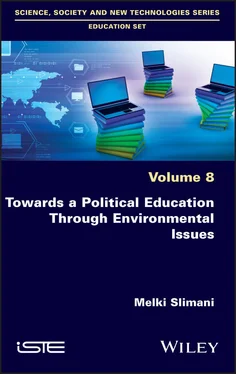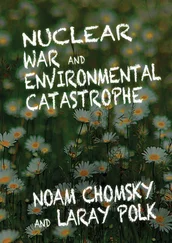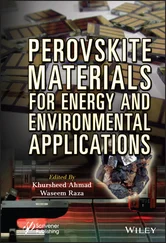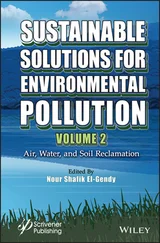Other programs follow the French tradition of didactic research: that of the didactics of socially acute questions (SAQs) and that of the didactics of the curriculum of education for sustainable development (ESD). In these two programs, the political is presented according to a double register: strategic and tactical (Lange 2011). Indeed, the work of Lange (2011, 2013, 2015) on the didactics of the ESD curriculum puts forward the political as a strategic purpose of this education on the one hand and as an organizing (tactical) principle of educational situations on the other. This research has enabled proposing an analytical model of the functioning of an educational situation for sustainable development as a social academic practice of democracy. Furthermore, the work of Simonneaux (2013b) and his team (Simonneaux 2011; Bérard et al . 2016) presents the political according to the strategic register of education geared towards scientific citizenship and according to a tactical register as organizers of situations of debate and deliberation on problematic environmental issues. Such scientific citizenship can be the aim of non-formal education for the political (action research aimed at popular education in politics).
Another program borrows from the Nordic tradition (Håkansson et al . 2017) whereby the political dimension of EDIs is identified in four aspects of the political as:
– generating inclusion and consensus;
– containing cognitive and emotional elements;
– involving power;
– representing a decision-making process.
The researchers involved in that program aim to transpose the idea of the political dimension practice of teaching and research to educational situations involving EDIs. Indeed, the work of Håkansson et al . (2017) proposes a categorization of these situations according to the political trend running through them. This trend may take the form of “democratic participation”, “political reflection”, “political deliberation” or a “political moment”. More recently, these researchers (Håkansson and Östman 2018) have proposed an analytical model integrating four phases of the “political moment” in these educational situations. The work of Van Poeck and Vandenabeele (2012) and Van Poeck et al . (2014) underline the importance of analyzing the democratic character of educational practices in terms of enriching the discussion on the democratic paradox in environmental education and sustainable development. Subsequently, these researchers set out to develop a method for analyzing “political movement” to study how teachers’ actions facilitate or hinder the opening of space for the political in educational situations (Van Poeck and Östman 2017). The work of Sund and Öhman (2014) and Sund (2016) proposes a reconsideration of the political in environmental education and sustainable development according to several guidelines (unmasking the political dimension, repoliticizing education, seeing beyond the relativistic and objectivistic divide and using emotion as a driving force).
Curricula are objects of formal schooling that privileges the universalization of its contents and strives to prohibit the unexpected and heterogeneous (Ardoino and Berger 2010). Non-formal education systems are also formalizations of the informal with normative drifts (Barthes 2017). Taking these two facts into account leads to the problem of the “fate” of the political in the EDIs when it comes to its inflections in non-formal and formal education.
This book aims to build a model in order to structure the political in educational content involving EDIs. The components of this model serve as didactic guidelines for the elaboration of the content of a possible curriculum for a political education through these questions. The book consists of six chapters.
Chapter 1, which follows the introduction, suggests that EDIs should be categorized into metathemes: environmental policies and environmental change, environmental ethics, sustainable development, agri-food issues, environmental technology and environmental management and, finally, the issue of transitions. This chapter also proposes a differentiation of the constitutive themes of these metathemes according to their anti-political or political trend. This thematic categorization refers to a historical analysis of human political thought.
Chapter 2focuses on the development of a conceptual and analytical framework for the political potential of EDIs. This analysis identifies this potential in four components: environmental literacy, environmental deliberation, ecological citizenship and collective environmental action.
Chapter 3presents a conceptual elaboration of political learning in educational content involving EDIs in relation to the socialization process. This learning is categorized according to four areas: learning about ecoliteracy in relation to disciplinary cognitive socialization, learning about citizenship in relation to political socialization, learning about deliberation in relation to critical cognitive socialization and learning in action regimes in relation to democratic socialization.
Chapter 4presents the methodology for data collection and analysis. This chapter introduces the empirical research by justifying the choice of two case studies and sources of evidence considered in this study: analyses of official documents, guided interviews for teachers and learners, and observations of classroom sessions using observation grids.
Chapter 5presents the results of analyses of educational content in a first case study chosen in non-formal education: that of learning content in the UNESCO document entitled “Education for the Sustainable Development Goals”.
Chapter 6presents the results of the analysis of in the case of formal education: that of content involving EDIs in Tunisian secondary and undergraduate curricula.
1 1 The urban transition movement initially originated in Great Britain in 2006 with Rob Hopkins who, along with his students, proposed a transition model for a city. Today, there are several other transition initiatives in several countries around the world, which form an international transition network.
2 2 In Europe, Climate Justice Action is a network of European grassroots movements that came into being in October 2014 at a time when COP21 symbolized the collective struggle for climate and social justice.
3 3 This report is entitled “Our Common Future”.
4 4 Accessible online on the Tunisian legislative portal: http://www.legislation.tn/sites/default/files/files/textes_soumis_avis/texte/mshrw_qnwn_lqtsd_ljtmy_wltdmny_1.pdf.
5 5 Informal education corresponds to learning that takes place in daily activities outside the academic framework of formal education and all other organized educational processes, such as those of non-formal education and its devices, including popular education or literacy (Brougère and Bézille 2007).
6 6 These non-formal education mechanisms are absent in Tunisia. No Tunisian school is registered on the network of eco-schools website: http://www.ecoschools.global/national-offices/.
1
The Political Trend in Environmental Issues
1.1. Politics, the political and depoliticization
To characterize the political field that intersects with EDIs, we have drawn on Gachkov’s (2012) advanced reading of the main concepts of the French philosopher Lefort 1(politics, democracy, revolution and human rights). In this reading, the author proposes a conceptual distinction between “politics” and “the political”, where the first term is conceived as a more niche sphere of social phenomena that exists among others (religion, law, civil society, etc.). Politics is seen as an institutionalization of the political (a symbolic field), actualizing it through the participatory civic form of radical democracy as “a democratic order in which the irreducibility of the plurality of understandings of the common good, the necessity of openness and transparency, an acceptance of fundamental uncertainty and the impossibility of ending the democratic quest are central” (Blokker 2014, p. 379).
Читать дальше












